The WRMarketplace is created exclusively for AALU members by experts at Greenberg Traurig and the AALU staff, led by Jonathan M. Forster, Steven B. Lapidus, Martin Kalb, Richard A. Sirus, and Rebecca S. Manicone. WRMarketplace #17-02 was written by Greenberg Traurig Shareholder Rebecca S. Manicone.
The AALU WRNewswire and WRMarketplace are published by the Association for Advanced Life Underwriting® as part of the Essential Wisdom Series, the trusted source of actionable technical and marketplace knowledge for AALU members—the nation’s most advanced life insurance professionals.”
TOPIC: The Trustee’s Duty to Inform and Report – What to Say and When.
MARKET TREND: Given the technical complexities of irrevocable trust administration, including the administration of irrevocable life insurance trusts (“ILITs”), trust litigation over breaches of fiduciary duty continues to rise. A trustee’s compliance with the duty to inform and report can be critical to avoiding liability.
SYNOPSIS: Most states impose a fiduciary duty on trustees of irrevocable trusts to inform and report to the beneficiaries regarding the trust accounts and administration.
Depending on the trust agreement and the applicable state law, this duty may range from mandating that the trustee notify beneficiaries of a trust’s existence and provide annual reports, to leaving all such disclosure and reporting activities in the trustee’s sole discretion. These variations in state laws and increasingly complex trust agreements can present unique compliance challenges and potential liability exposure, particularly for non- professional trustees who lack the necessary experience and administrative infrastructure.
TAKE AWAYS: A trustee’s duty to inform and report protects the interests of trust beneficiaries and can limit the trustee’s liability. This duty applies to trustees of all irrevocable trusts, including ILITs, even if the trust creator (grantor) is still living. As there is no uniform set of rules for compliance, however, each trustee must review the applicable state law, the trust agreement, and the trust’s circumstances to determine the specific reporting obligations. Due to legal nuances in understanding state statutes and trust agreements, non-professional trustees should consult with legal counsel to determine the scope of, and ensure compliance with, their disclosure obligations. Even when not required, trustees also may want to consider non-mandatory disclosures to beneficiaries to take advantage of available liability and other protections under state law.
MAJOR REFERENCES: Uniform Trust Code (2010).
Most states impose a fiduciary duty on trustees of irrevocable trusts to inform and report to the beneficiaries regarding the trust accounts and administration. Variations in state laws and increasingly complex trust agreements, however, can present unique compliance challenges, especially for non-professional trustees who lack the necessary experience and administrative infrastructure. Understanding the importance and general parameters of this duty, as well as the steps to determine the scope of their particular obligations, can help trustees ensure compliance and manage their liability exposure.
REASONS TO INFORM & REPORT
For Compliance. State law may require a trustee to disclose the existence of a trust and other information to the beneficiaries, as well as provide written accounts of the trust’s assets, liabilities, receipts, and disbursements on a periodic basis and/or upon the occurrence of certain events (such as a change in trustee).
For Protection. Generally, the duty to inform and report serves numerous practical considerations for both trustees and beneficiaries, which, depending on state law, include:
- Providing trust beneficiaries with sufficient information to enforce the trustee’s duties, preserve the trust, and protect their beneficial interests;;
- Providing trustees with protection and closure with regard to specific transactions or for a certain time frame, particularly if no court approval is sought for the transaction or accounting;;
- For changes in trustees, clearly delineating the actions and decisions of the prior trustee and providing full knowledge to the new trustee of the trust’s assets and activities;;
- Evidencing good faith in trust administration and management (often, individual trustees will not be liable for breaches of fiduciary duty if they acted in good faith);; and
- Starting the statute of limitations to run for actions again the trustee for breaches of fiduciary duty or other causes related to the matters disclosed or accounted for.
REPORTING REQUIREMENTS
No Single Set of Rules. There is no single set of rules governing the duty to inform and report. The scope of the duty has developed over time, state-by-state, based on case law and the Uniform Trust Code (“UTC”),1 a model code used by many states to develop their specific trust laws.2 Thus, state rules vary considerably and include both mandatory provisions and default rules, which a trust agreement can modify or delete. Also the specific requirements for disclosure and reporting, including the forms to use and the protections available, will depend on the trust’s terms, the interest, age, and capacity of a beneficiary, and the size, type, and complexity of trust assets or transactions.
Some Commonalities. Despite variations, the reporting and disclosure rules generally fall into several broad categories. Accordingly, using the UTC as a guide, many trustees could find themselves subject to one or more of the following obligations:
- Keep Beneficiaries Reasonably Informed. The trustee must actively report to “qualified” beneficiaries regarding the trust’s administration and material facts necessary for them to protect their interests. Generally, “qualified beneficiaries” are (1) current beneficiaries, (2) those next in line as beneficiaries after the current beneficiaries’ interests terminate, and (3) anyone entitled to income or principal if the trust terminates.
- Provide Periodic Reports (Accounts). The trustee must send to current beneficiaries and permissible beneficiaries of trust income or principal, and to other beneficiaries who request it, a written report that includes (1) the trust property, liabilities, receipts, and disbursements, (2) the source and amount of the trustee’s compensation, and (3) a list of the trust assets and, if feasible, their market values. The reports must be sent at least annually and at trust termination.
- Respond to Beneficiary Requests for Information. The trustee must promptly (1) respond to any beneficiary’s request for information related to the trust’s administration, unless unreasonable under the circumstances and (2) furnish a copy of the trust agreement to any beneficiary who requests a copy. For these purposes, a “beneficiary” is essentially anyone with any interest in the trust, whether present, future, contingent, or vested.
- Notify Beneficiaries of Trust’s Creation and Related Information. Within 60 days after a trustee learns of the creation of an irrevocable trust or a change in a revocable trust to an irrevocable trust, the trustee must notify the qualified beneficiaries of (1) the trust’s existence, (2) the identity of the grantor(s), and (3) the beneficiaries’ right to request a copy of the trust instrument and to receive a trustee’s report.
- Notify Beneficiaries of Acceptance of Trusteeship. Within 60 days after accepting a trusteeship, the trustee must notify qualified beneficiaries of the (1) acceptance and (2) trustee’s name, address, and telephone number.
- Notify of Changes in Trustee’s Compensation. The trustee must notify qualified beneficiaries in advance of any change in the method or rate of the trustee’s compensation.
TRUST LIMITS ON REPORTING OBLIGATIONS
Despite the benefits offered by making trust disclosures, many grantors wish to keep trust information confidential, due to privacy concerns and the worry that the disclosure of information to a beneficiary may create disincentives for him or her to attain an education, obtain employment, or achieve other social and professional milestones. To address these concerns, the trust disclosure laws of most states consist primarily of default rules, which a grantor may waive or modify in the trust agreement.
For example, under the UTC, the trust agreement can modify or waive the duty to (1) respond to a beneficiary’s request for a copy of the trust, (2) provide annual reports to qualified beneficiaries, and (3) advise a beneficiary under age 25 of the trust’s existence, the trustee’s identity, and the beneficiary’s right to request trustee reports. The UTC, however, makes mandatory the duty to respond to a qualified beneficiary’s request for trustee reports and other information reasonably related to the trust’s administration (with an option to make this mandatory only for beneficiaries who have attained age 25). Other “optional” provisions the UTC would make mandatory include the duty to notify qualified beneficiaries of the trust’s existence, the trustee’s identity, and their right to request trustee reports (can be made mandatory only for beneficiaries age 25+), as well as the duty to notify beneficiaries of the acceptance of a trusteeship (again, can be mandatory only for beneficiaries age 25+).3
However, even among states that have adopted the UTC, there has been a significant lack of uniformity regarding enactment of the UTC’s mandatory disclosure requirements. Some states permit “quiet” or “silent” trusts, which allow the grantor to waive all or almost all disclosures to the beneficiaries, perpetually or for some period of time (such as until after the grantor passes, or a beneficiary attains a desired age).4 Other states allow the grantor to designate a “designated representative”, surrogate, or alternate person to receive certain or all mandatory or other disclosures on behalf of the trust beneficiaries, which attempts to balance the need for disclosure and the desire for privacy.5
CHECKLIST FOR TRUSTEES
Since no uniform set of rules governs all trustees with regard to the duty to inform and report, trustees should take the following steps when accepting and maintaining a trusteeship:
- Understand Requirements. Trustees should review and understand the disclosure and accounting requirements of the trust’s applicable state law, as modified by the trust agreement. Specific questions to consider include:
- Who? Who must receive disclosures and accountings -- only qualified beneficiaries, all beneficiaries, and/or a designated representative on behalf of one or more beneficiaries?
- Why? Why is the disclosure or accounting being provided? Is it required? In response to a request? Designed to provide notice and obtain approval of a special trust transaction?
- What? What information must a disclosure or accounting contain and what form must it take? For example, with a trust accounting, is it sufficient to provide copies of the trust’s tax returns and account statements, if they contain all the required information?
- When? When must trust information be provided to the beneficiaries– upon request, when the trust is created/becomes irrevocable, when there is acceptance of or change in a trusteeship, when certain beneficiaries attain certain ages, etc.? When are financial accountings required – annually and/or upon termination of the trust?
- How? How must the trustee provide the disclosure or accounting? By certified mail (with or without return receipt) or first class mail? And to what address (if to last known address, is that adequate)? Are there instances where email delivery will suffice?
- Consider When Non-Mandatory Disclosures/Accountings May Be Desirable. Even when not required, a trustee may want to take advantage of protections made available under applicable state law if a disclosure or accounting is provided, such as starting the limitations statute running, shortening the statute of limitations on trust contests or surcharge actions against the trustee, or limiting a beneficiary’s right to object to a distribution or other trust action (such as through obtaining beneficiary consents, releases, and ratifications).
- Seek Professional Advice and/or Services. Given the complexity of state laws and trust agreements, non-professional trustees will likely need legal guidance in determining the scope of their particular duties to inform and report under a given trust instrument. These trustees also may wish to hire assistance in preparing and distributing trust disclosures and accounts to beneficiaries, as most will lack the necessary infrastructure and experience to prepare and deliver the information and accounts in a compliant fashion.
TAKE AWAYS
- A trustee’s duty to inform and report protects the interests of trust beneficiaries and can limit the trustee’s liability. This duty applies to trustees of all irrevocable trusts, including ILITs, even if the trust’s grantor is still living.
- As there is no uniform set of rules for compliance, however, each trustee must review the applicable state law, the trust agreement, and the trust’s circumstances to determine the specific reporting obligations. Due to legal nuances in understanding state statutes and trust agreements,
- non-professional trustees should consult with legal counsel to determine the scope of, and ensure compliance with, their disclosure obligations.
- Even when not required, trustees also may want to consider non- mandatory disclosures to beneficiaries to take advantage of available liability and other protections under state law.
DISCLAIMER
This information is intended solely for information and education and is not intended for use as legal or tax advice. Reference herein to any specific tax or other planning strategy, process, product or service does not constitute promotion, endorsement or recommendation by AALU. Persons should consult with their own legal or tax advisors for specific legal or tax advice.
TCO 362318486v2
1 Uniform Trust Code (2010).
2 States that have adopted some form of the UTC include: Alabama, Arizona, Arkansas, District of Columbia, Florida, Kansas, Kentucky, Maine, Maryland, Massachusetts, Michigan, Minnesota, Mississippi, Missouri,Montana, Nebraska, New Hampshire, New Jersey, New Mexico, North Carolina, North Dakota, Ohio, Oregon, Pennsylvania, South Carolina, Tennessee, Utah, Vermont, Virginia, West Virginia, Wisconsin, andWyoming.
3 The UTC notes “optional” mandatory disclosure requirements out of recognition that there is a lack of consensus on the extent to which a grantor ought to be able to waive reporting to beneficiaries, and that there is little chance that the states will enact these provisions with uniformity. States that have adopted the UTC with some form of mandatory disclosure requirements include:Alabama,Arizona,Florida (but with the ability to appoint a designated representative to receive mandatory disclosures and accounts on behalf of beneficiaries, see note 5), Maine, Maryland, Michigan, Missouri, Nebraska, New Jersey, New Mexico, Ohio, and Pennsylvania.
4 See, for example, Arkansas, Kansas, Kentucky, Massachusetts, Minnesota, Montana, New Hampshire, North Carolina, North Dakota, South Carolina, Tennessee, Utah, Vermont, Virginia, West Virginia, Wisconsin, and Wyoming.
5 Examples of states that allow appoint of a designated representative or other alternate or surrogate to receive some or all disclosures on behalf of a beneficiary include: Delaware, District of Columbia, Florida, Maine, Mississippi, Ohio, and Oregon. The extent and type of information that can be disclosed solely to a designated representative or surrogate, and for what duration of time, will depend on applicable state law.






